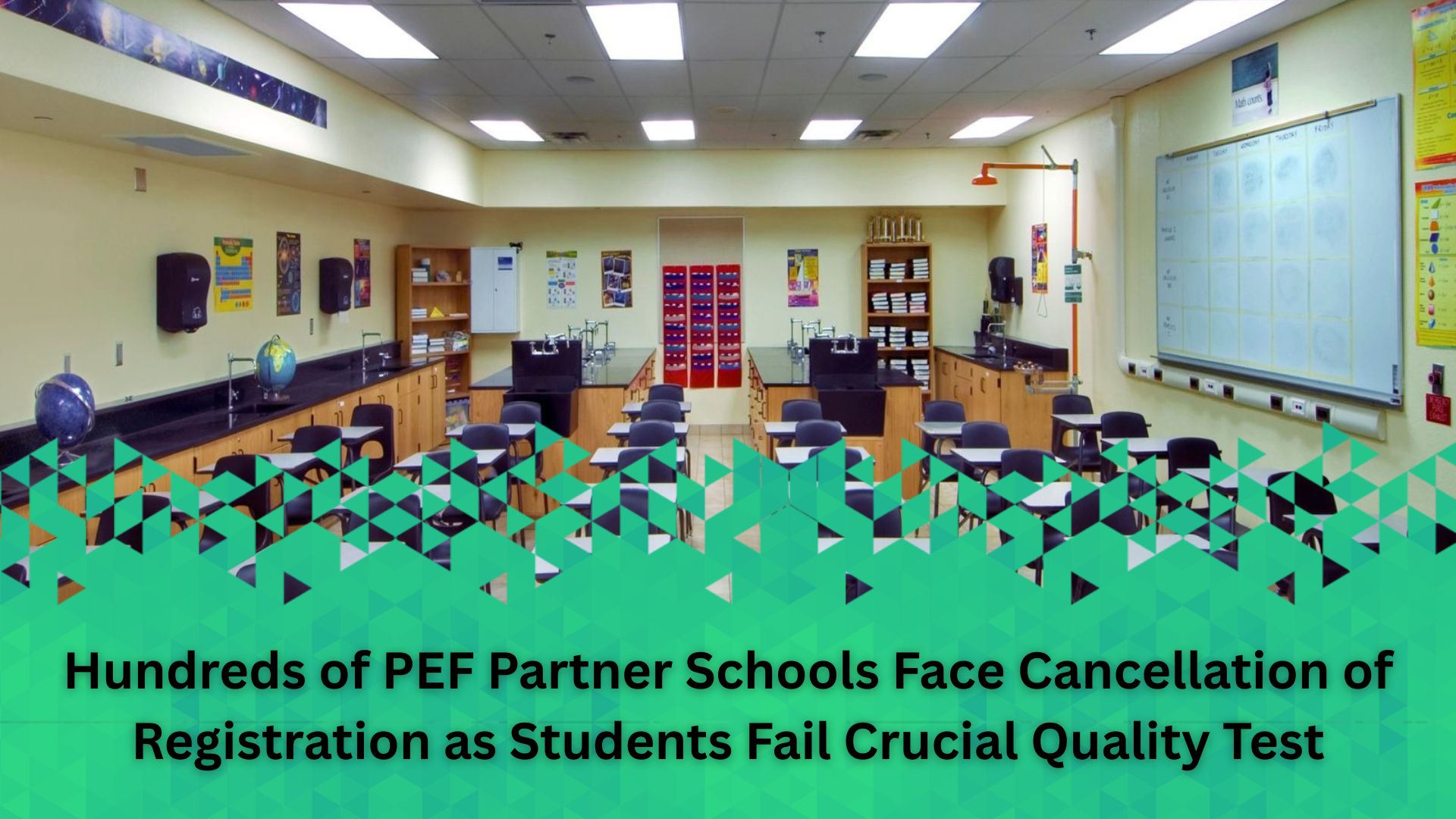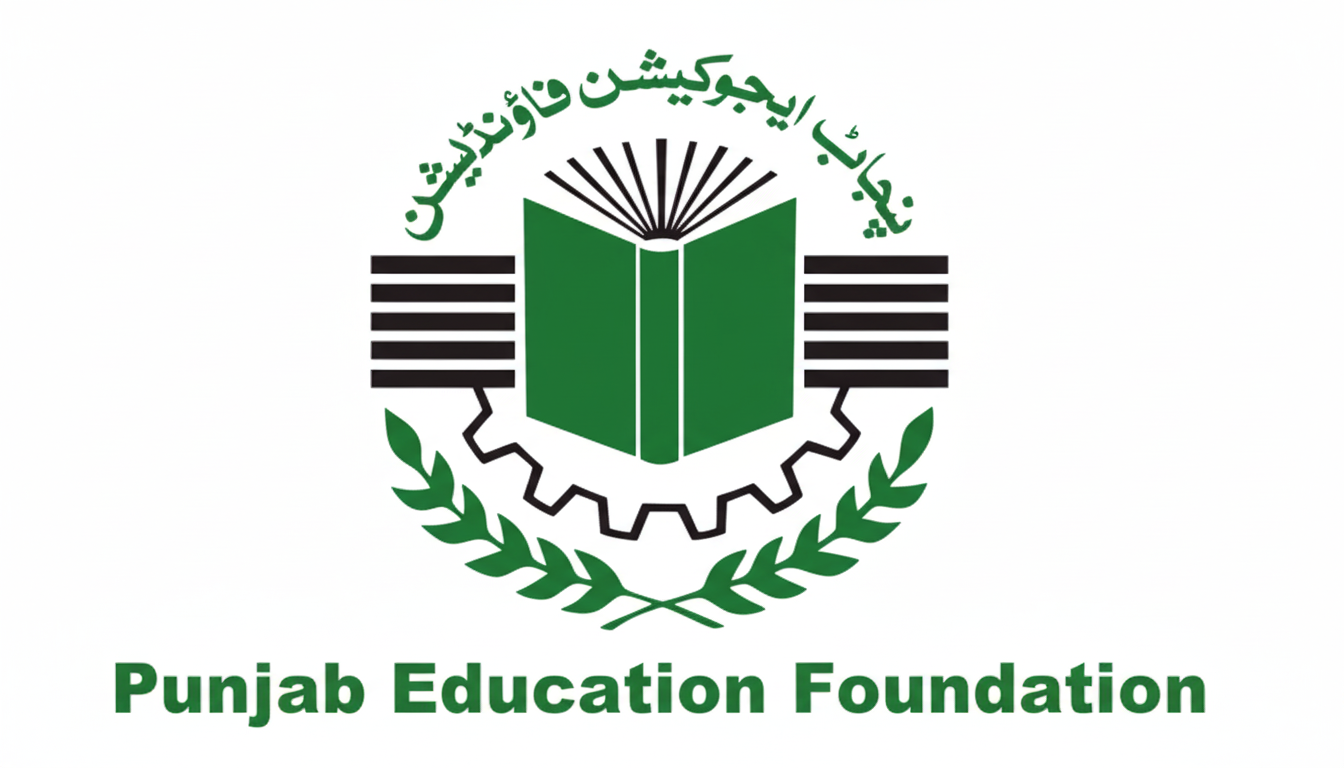
Hundreds of PEF Partner Schools Face Cancellation of Registration as Students Fail Crucial Quality Test
The educational future of hundreds of partner schools affiliated with the Punjab Education Foundation (PEF) hangs in the balance after a significant number of their students failed to pass a mandatory pre-Quality Assurance Test (pre-QAT) . This mass failure has triggered a potential wave of registration cancellations, putting the schools' operations and the education of thousands of children at risk.
The crisis emerged following the results of the pre-QAT, a standardized assessment designed to evaluate the learning outcomes of students in PEF-supported institutions. According to widespread media reports, the performance was so dismal across hundreds of schools that it immediately flagged them for non-compliance with the Foundation's quality standards. You can also view 5th Class Guide .
Re-Checking Window Opens with a Hefty Fee
In response to the outcry from the affected partner schools, the PEF has granted a temporary reprieve. The foundation has announced a limited-time window for these institutions to apply for a re-checking of their students' answer sheets. However, this opportunity comes at a significant cost: a non-refundable fee of Rs. 10,000 per application.
Schools seeking a review of the evaluation process must submit their applications online through the official PEF portal. The deadline for these applications is set for November 26 . This move is seen as a final procedural step before the PEF moves ahead with the drastic measure of canceling the registrations of the non-performing schools.
The Stakes: What the Quality Assurance Test Means
The Quality Assurance Test is a cornerstone of the PEF's model. The foundation partners with private schools to provide free education to underprivileged children, with funding contingent upon the school meeting specific quality benchmarks. The QAT, and its preparatory pre-QAT, are tools to ensure that students are receiving a satisfactory education and that public funds are being utilized effectively.
A failure in the pre-QAT suggests that students in these institutions are not achieving the required competency levels in core subjects like Urdu, English, Mathematics, and Science. For the PEF, continuing to fund schools that do not demonstrate educational value is untenable.
"The very purpose of the PEF is to break the cycle of poverty through quality education," commented an education policy expert who wished to remain anonymous. "If partner schools are consistently failing to educate children, the entire model is compromised. The threat of deregistration is a powerful, albeit severe, accountability mechanism". You can also view 8th Class Guide .
School Administrations Voice Their Concerns
On the ground, the mood among administrators of the affected schools is one of anxiety and frustration. Many argue that the one-size-fits-all approach of the QAT does not account for the challenges of teaching in low-income communities.
"We serve children who are first-generation learners. Their parents are often illiterate, and we have to build a foundation from scratch," said Mr. Ali Raza, the principal of a partner school in a suburban area. "While we are not making excuses, the evaluation should consider our context. A Rs. 10,000 re-checking fee is also a substantial burden for a small school already struggling with finances."
Other school owners have raised questions about the transparency of the initial evaluation process, which is a key reason they are opting for the re-check, despite the cost.
PEF's Stance: Upholding Standards and Accountability
Officials from the Punjab Education Foundation have maintained a firm stance, emphasizing that quality cannot be compromised. While they have acknowledged the schools' right to seek a re-check, they have also signaled that there will be no further concessions if the results remain unsatisfactory.
A senior PEF official, speaking on background, stated, "Our primary responsibility is to the children and the taxpayers. The pre-QAT is a diagnostic tool. When hundreds of schools fail, it indicates a systemic issue that we cannot ignore. The re-checking process is fair, but it is the final step. Schools that do not meet the mark will have their partnerships terminated to make way for institutions that can deliver quality education."
Implications for Thousands of Students
The most significant impact of this impending crackdown will be on the students themselves. If hundreds of schools have their registrations canceled, thousands of children could be suddenly displaced, needing to find new educational institutions mid-session. This disruption could have long-term consequences for their academic continuity and psychological well-being.
Education advocates are urging the PEF to have a robust transition plan in place for affected students. "Accountability for schools is essential, but the right to education of every child is paramount," said Ayesha Khan, a child rights activist. "The government and PEF must ensure that no child is left without a school seat if these closures proceed."

The Road Ahead
All eyes are now on the November 26 deadline. The coming weeks will determine the fate of these hundreds of partner schools. The re-checking process could either vindicate the schools' claims of unfair evaluation or confirm the PEF's fears of widespread underperformance.
The outcome will not only shape the landscape of public-private education in Punjab but also set a critical precedent for how educational quality is enforced in a system that serves millions of the province's most vulnerable children. The PEF's decision will resonate far beyond the walls of the failing schools, signaling a new, stricter era of accountability for publicly-funded education.












